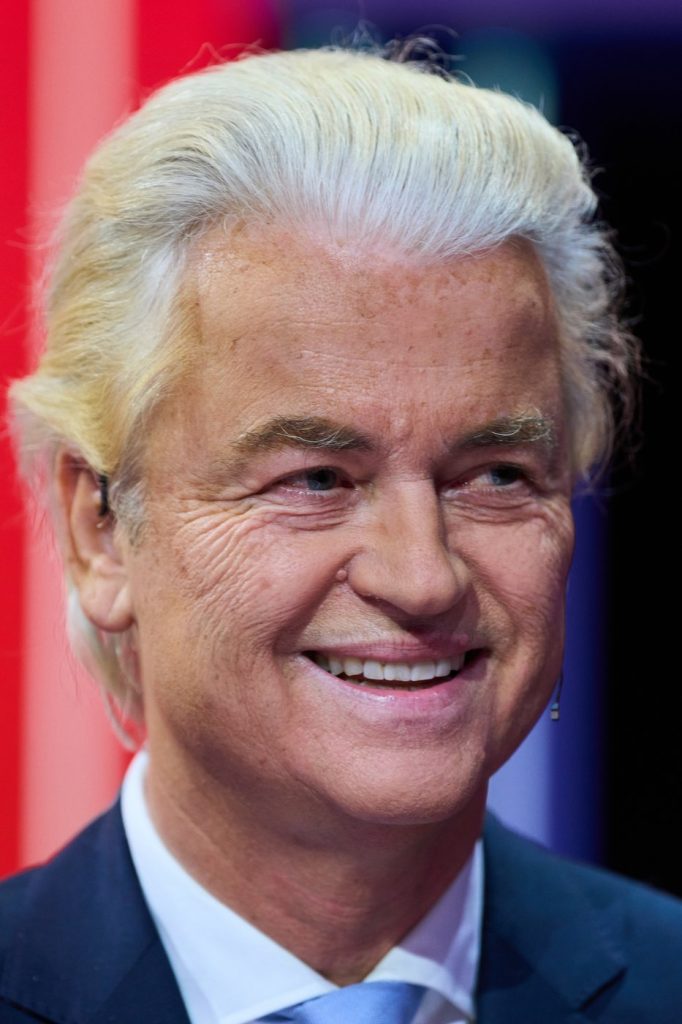THE HAGUE, Netherlands (AP) — The upcoming Dutch election for all 150 seats in the lower Second Chamber of parliament is anticipated to be a closely contested battle. The focal point is between Geert Wilders’ populist, anti-Islam Party for Freedom, which emerged as a surprise victor in the last election, and the center-left coalition formed by the Labor Party and Green Left.
Geert Wilders has established himself as one of the Netherlands' most recognizable lawmakers due to his vehement criticism of Islam. For many years, he remained in opposition until two years ago when his Party for Freedom achieved an unexpected election victory. Although Wilders gained significant electoral success, he was ultimately denied the position of prime minister by coalition partners who were hesitant to give him the top political role. Subsequently, he appointed Dick Schoof, a career civil servant, to take on the role of premier.
The closest Wilders came to power prior to this recent success was in 2010, when he supported a minority coalition led by then-Prime Minister Mark Rutte. However, he did not formally join the administration and subsequently caused its collapse after 18 months due to disagreements over austerity measures. At 62 years old, Wilders has required round-the-clock protection for over two decades due to ongoing death threats against him.
In previous controversies, Wilders was convicted in 2014 for insulting Moroccans during an election-night rally. He vehemently condemned the ruling as a “political trial” that undermined freedom of speech.
Frans Timmermans, the 64-year-old leader of the Labor Party, has previously served as the Dutch foreign minister and European Commission vice president responsible for climate policy. He played a crucial role in merging the Labor Party with the Green Left to form a united center-left bloc that stands as a strong contender against Wilders’ Party for Freedom in preelection polls. Timmermans gained international recognition following his emotional speech at the United Nations Security Council after the downing of Malaysia Airlines flight MH17 over Ukraine in 2014.
During the election campaign, Timmermans’ party faced challenges, including a police complaint regarding fake, AI-generated images that depicted him in compromising scenarios. The images circulated on a Facebook group linked to two members of Wilders' party, causing controversy and prompting Wilders to apologize, although he did not impose sanctions on those involved.
Henri Bontenbal, the 42-year-old leader of the center-right Christian Democratic Appeal, has been credited with a significant turnaround for his party since assuming leadership in August 2023. Prior to his leadership, the party suffered a major defeat in the last election, losing 10 of its 15 seats. Nevertheless, Bontenbal maintained his position, focusing on restoring integrity in Dutch politics amid a series of scandals that have affected public trust in lawmakers.
As a former sustainability adviser and a father of two, Bontenbal has drawn on his background to promote progressive changes within his party, such as supporting nuclear power as an alternative to fossil fuels, while also distancing from traditional ties to the Dutch agricultural sector.
Dilan Yeşilgöz-Zegerius, a former refugee from Turkey and current leader of the People’s Party for Freedom and Democracy (VVD), has faced significant challenges since taking over leadership from the Netherlands’ longest-serving prime minister, Mark Rutte. Despite taking the reins with aspirations of becoming the nation's first female prime minister, Yeşilgöz-Zegerius presided over a disappointing election performance that saw her party overshadowed by both Wilders and the center-left coalition.
At 48 years old, she remains in charge of VVD but may face leadership challenges if the party experiences further electoral setbacks. Her party has been struggling in the polls, particularly after rifts emerged within the four-party coalition over migration issues, leading to coalition instability.
On the younger side of the political spectrum is Rob Jetten, the 38-year-old leader of the centrist D66 party. Once serving as climate minister, Jetten was first elected to parliament in 2017 and took over party leadership again for the upcoming election after a brief period where Sigrid Kaag led the party. Known for addressing homophobia within politics by sharing his own experiences, Jetten continues to advocate for progressive values while navigating a political landscape that is rapidly evolving.











